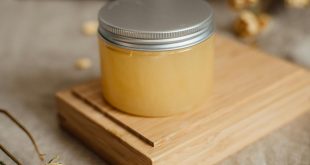Teflon flu, also known as polymer fume fever, is a temporary flu-like condition caused by inhaling fumes released from overheated nonstick cookware, particularly those coated with polytetrafluoroethylene (PTFE), commonly known as Teflon. Here’s what you need to know about it:
Teflon flu occurs when nonstick pans are heated to high temperatures, typically above 500°F (260°C). At these temperatures, the PTFE coating can begin to break down and release fumes containing various chemicals, including perfluorooctanoic acid (PFOA) and other potentially harmful substances. These fumes can be irritating to the respiratory system.
Symptoms of teflon flu
- Chills
- Fever
- Headache
- Nausea
- Cough
- Sore throat
- Body aches
These symptoms are generally mild and temporary, lasting a few hours to a few days. However, they can be more severe in some cases, especially with prolonged exposure or in individuals with pre-existing respiratory conditions.
Prevention and safety tips
To minimize the risk of Teflon flu, consider the following precautions:
- Avoid high heat: Do not overheat nonstick cookware. Keep temperatures below 500°F (260°C) and use low to medium heat settings.
- Proper ventilation: Ensure good kitchen ventilation when cooking with nonstick pans to disperse any fumes.
- Use alternatives: Consider using cookware made from alternative materials, such as stainless steel, cast iron, or ceramic, which do not release harmful fumes.
- Check for damage: Replace nonstick pans that are scratched or damaged, as they are more likely to release fumes at lower temperatures.
Safety of nonstick cookware
While Teflon flu is a concern, nonstick cookware is generally considered safe when used correctly. Most modern nonstick pans are made without PFOA, a chemical previously used in the production of PTFE that has been linked to health concerns.
For more detailed information and safety guidelines, it is advisable to consult reliable sources such as health organizations or the cookware manufacturer’s instructions.
 Top Naija News – Nigeria News, Nigerian News & Top Stories Top Naija News – Nigerian Newspapers, Nigerian News. topnaijanews is a daily Nigerian newspaper covering Latest News, Breaking News, Entertainment, Sports, Lifestyle and Politics.
Top Naija News – Nigeria News, Nigerian News & Top Stories Top Naija News – Nigerian Newspapers, Nigerian News. topnaijanews is a daily Nigerian newspaper covering Latest News, Breaking News, Entertainment, Sports, Lifestyle and Politics.




